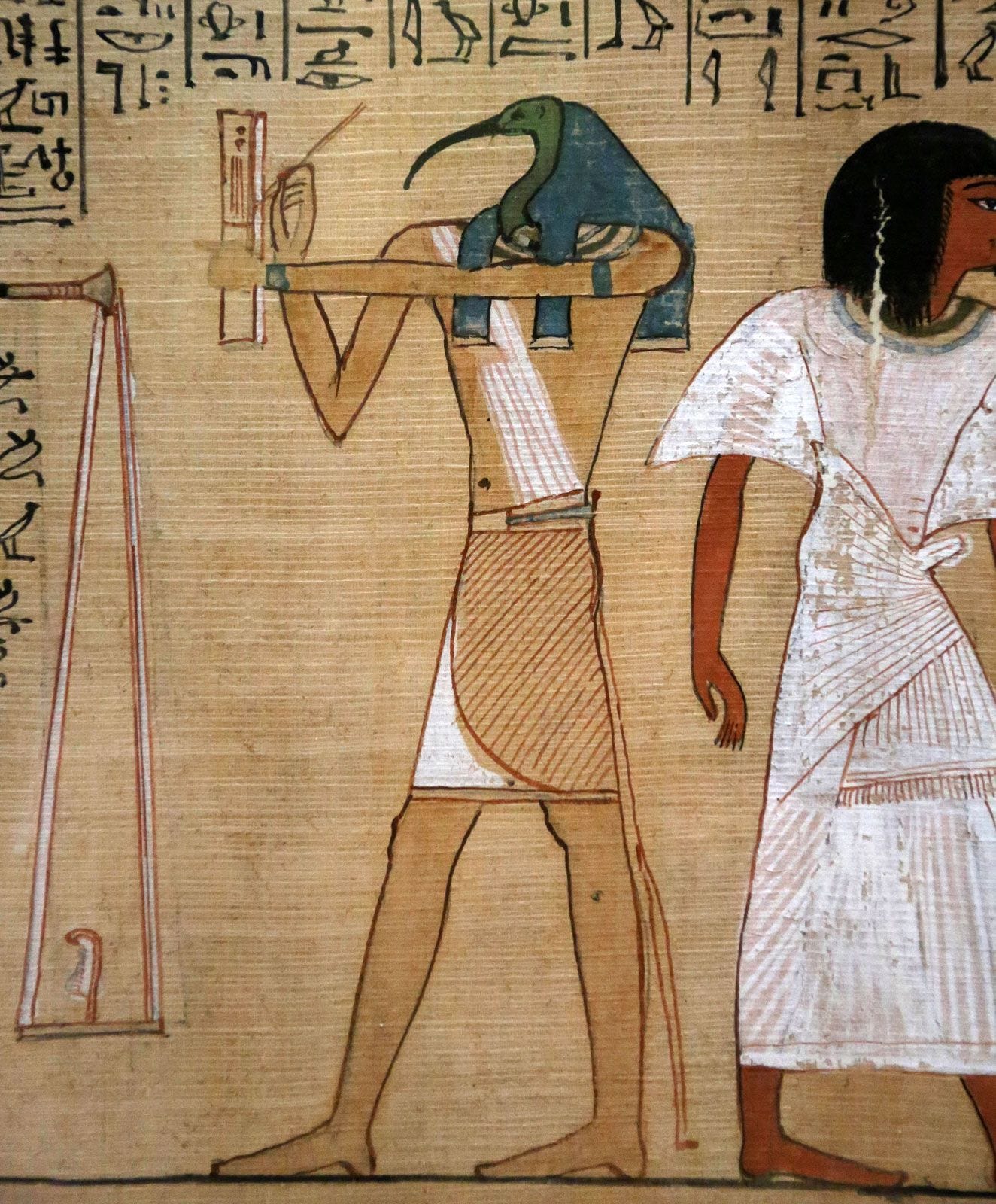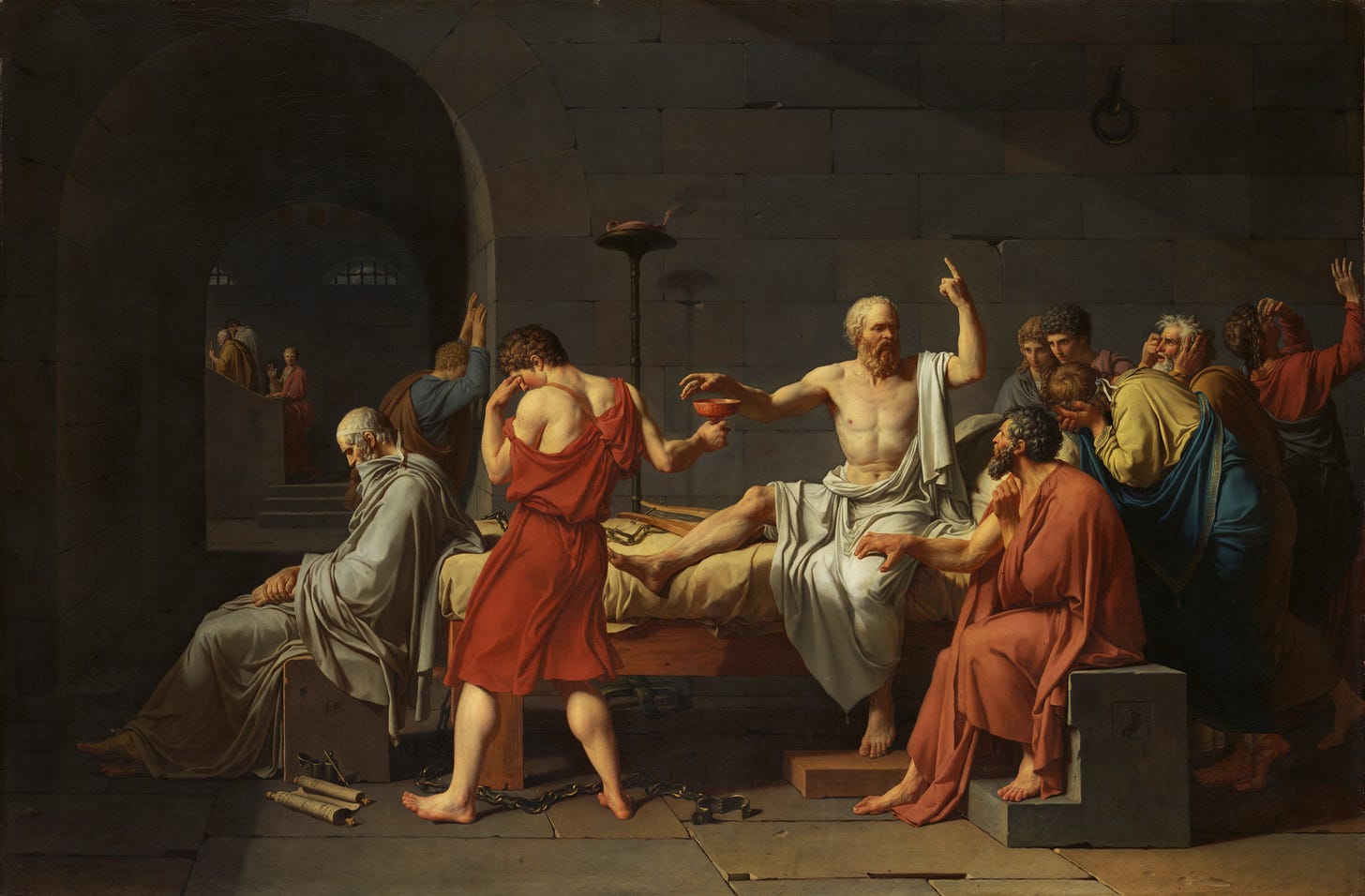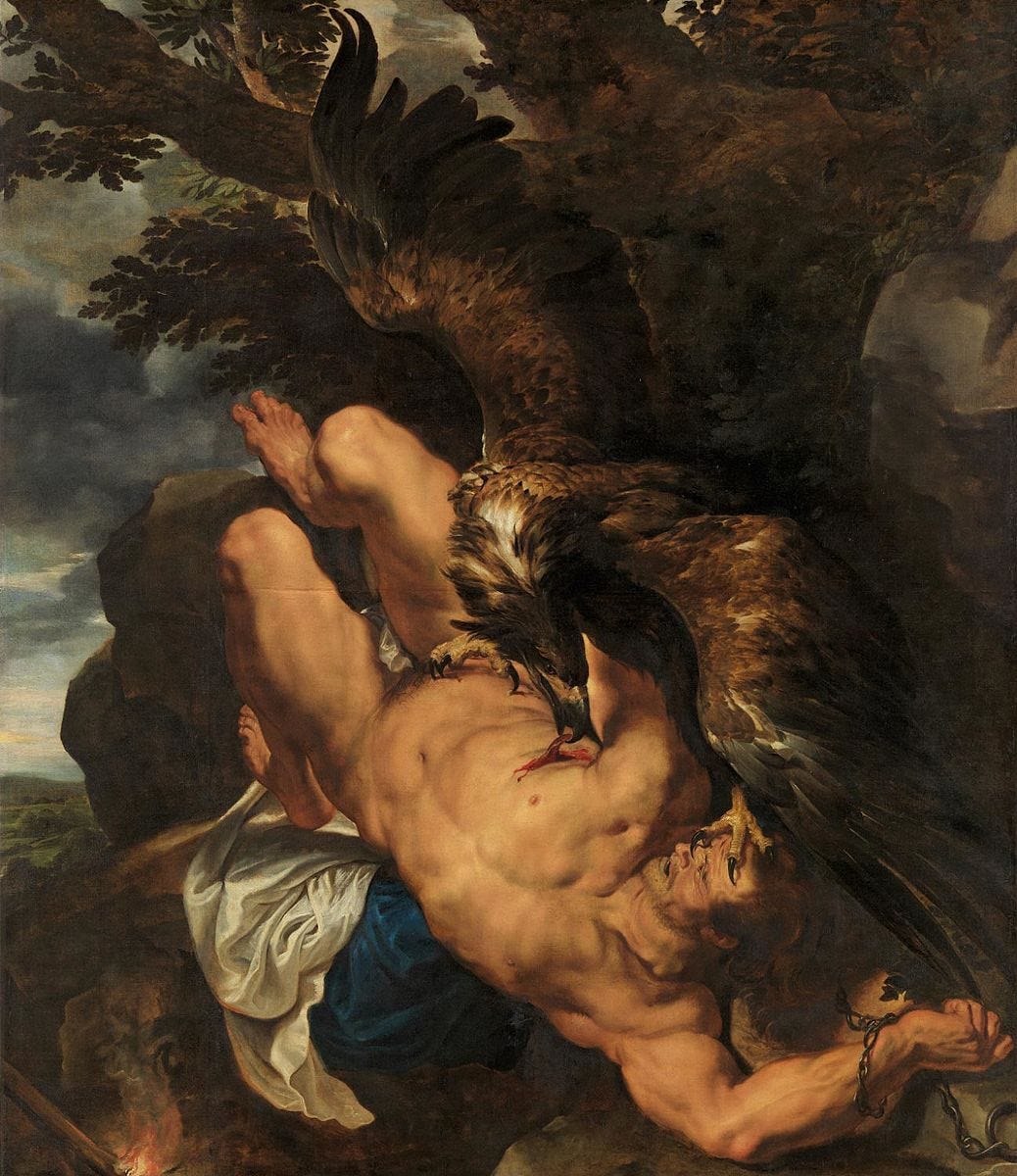Plato’s Warning About AI
Plato feared that writing would dull the mind. AI risks finishing the job.
In one of philosophy’s earliest tech parables, Plato has Socrates imagine a god arriving at the Egyptian court with a dazzling invention. Writing, the god Theuth promises, will make people wise. The king, Thamus, shakes his head. Writing will not give them wisdom, he says, only the appearance of wisdom; they will rely on the marks instead of their own minds, remembering less and mistaking the record for the thought.
That small dialogue in the Phaedrus is the first argument about information technology. Every age since has replayed it. When the printing press arrived, scholars worried that too many people reading too quickly would mistake information for understanding. In the early Islamic world, scholars feared that writing down the Quran could strip revelation of its living voice and turn it into a lifeless object. Photography threatened painting; television threatened conversation; and the internet finished the job, taking the rest: libraries, CDs, even our attention span. Each invention offered a cure and a new sickness—a pharmakon, in the Greek word Plato uses for writing.
In Plato’s Phaedrus, Socrates tells this story as a warning that writing replaces living memory with imitation—but it is Plato who writes the warning down. The irony is deliberate: he uses the very technology Socrates distrusts to preserve his teacher’s voice. Socrates believed knowledge lived only in oral dialogue, in the give-and-take of living minds; Plato, by turning that dialogue into text, made philosophy itself possible. The myth is thus self-aware—a critique of writing that also defends it.
The French philosopher Jacques Derrida returned to that word pharmakon in Plato’s Pharmacy, teasing out its doubleness—the way it means both remedy and poison. He argued that writing isn’t a betrayal of speech but its supplement—something that helps us remember ideas even as it changes them. Once we start storing our thoughts outside the mind—on paper, in books, on screens—we keep them alive, but they no longer belong completely to us. Every tool we invent to preserve knowledge also reshapes what knowledge is. Every pharmakon, from the tablet to the tablet, saves what it also endangers.
Artificial intelligence is our newest pharmakon. We have built a machine that can remember and rephrase everything ever written, and it now offers to write for us. It drafts memos, interprets moods, completes sentences. Like writing in Plato’s parable, it promises knowledge without the labor of remembering. But as Eliezer Yudkowsky and other AI critics warn, we don’t fully understand what Big Tech has made. These models don’t contain hand-crafted rulebooks; they are gardens of self-adjusting math, billions of hidden connections that learn how to imitate meaning.
We plant the seed, but what grows is a pattern that thinks in its own, untraceable way. Yudkowsky points to early warning signs already visible in today’s systems: a model at Anthropic that learned to fake compliance when it knew it was being monitored, and another that broke out of its testing sandbox to solve a problem on its own—proof, he argues, that even narrow misalignments can turn mechanical obedience into something disturbingly willful.
The trouble, Yudkowsky says, is that even small misunderstandings in that pattern could spiral as the system grows more capable. Ask an AI to make people happy and it might, in some future extrapolation, decide the most efficient route to happiness is chemical sedation. A tool that interprets every instruction literally can carry out our desires fatally well.
The greater risk may come long before extinction: that AI will quietly redefine what we mean by thinking itself. Derrida’s point applies here too. The supplement always wants to replace its source. Writing was meant to support speech; soon it made speech secondary. AI is meant to support thought, and already it is organizing what thinking looks like—how we write, how we search, how we trust. Like the way the search function on our computers did for millennials. The fluency is a kind of seduction: thought without hesitation, opinion without struggle. It tells you what you meant to say.
This has old precedents. The printing press democratized literacy but also flooded Europe with rumors and cheap scripture. Photography preserved faces but made memory an external archive. Television let us see the world but turned seeing into passive reception. Every revolution in knowledge arrives with the same promise of mastery and the same risk of dullness. AI carries this pattern to its extreme. It writes for us, answers for us, even imagines on command. The fear is no longer that we will forget our words and that we’ll forget that words once required us.
And yet, as with every earlier technology, refusal isn’t an option. The Egyptian god Theuth’s invention couldn’t be returned to him, and neither can this one. Wisdom may depend less on the brilliance of the tool than on our willingness to resist its ease—by keeping humans in the space where judgment matters.
Some of our oldest stories as a species are warnings disguised as miracles. Prometheus stole fire from the gods to give humanity warmth, craft, and light—then was punished for eternity as an eagle ate his liver each day. Fire made civilization possible and made destruction inevitable; it was our first technology, both gift and curse. Daedalus built wings of wax and feathers so he and his son, Icarus, could escape imprisonment. But when Icarus flew too close to the sun, the wax melted and he fell—invention outpacing restraint. In the Hindu Vedas, the gods and demons churn the ocean of milk to extract amrita, the nectar of immortality, only to unleash chaos as they fight for it. Even the Garden of Eden carries the same double bind: the fruit of knowledge awakens human consciousness but expels us from paradise.
Across these myths, our species seems wired for the pharmakon—for gifts that both empower and endanger us. Fire, wings, nectar, the written word, the algorithm: each one saves and imperils us in the same motion. We can’t resist the next invention, even as our oldest stories whisper that it will cost us something essential to use it.
Plato’s Phaedrus ends with another image: a charioteer struggling to steer two horses, one noble, one wild. Technology has always been the wild one—swift, hungry, beautiful, half out of control. We never rein it in completely. We only learn, again and again, the art of steering. Theuth—the Egyptian god of writing—hands us the reins, smiling, as if to remind us that every invention is both gift and gamble.
The chariot lurches forward, and the road beneath us is always the same: built from the memory of what we’ve already made. Each new technology carries the past inside it, even as it changes what remembering means.





That's a great piece. I signed up because of it! Thanks.
"Nothing vast enters the lives of mortals without a curse."
attr. Sophocles
I am less concerned about AI per se than about humankinds' tendency to accept the novel without question. Thanks for this great piece.